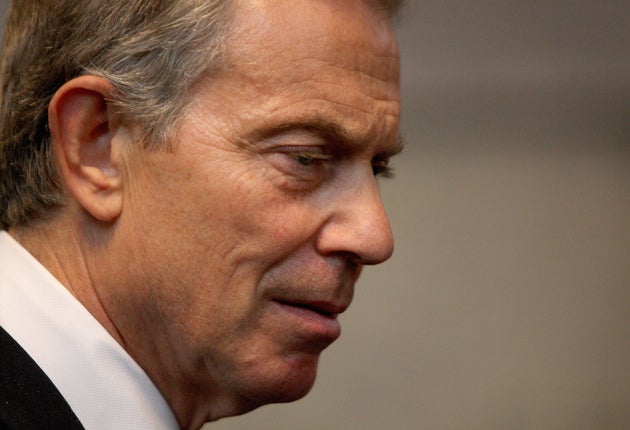Merkel and Sarkozy unite to end Blair's European dream
Former prime minister's bid for EU presidency founders as continent's most powerful leaders announce they would prefer candidate from smaller country

Your support helps us to tell the story
From reproductive rights to climate change to Big Tech, The Independent is on the ground when the story is developing. Whether it's investigating the financials of Elon Musk's pro-Trump PAC or producing our latest documentary, 'The A Word', which shines a light on the American women fighting for reproductive rights, we know how important it is to parse out the facts from the messaging.
At such a critical moment in US history, we need reporters on the ground. Your donation allows us to keep sending journalists to speak to both sides of the story.
The Independent is trusted by Americans across the entire political spectrum. And unlike many other quality news outlets, we choose not to lock Americans out of our reporting and analysis with paywalls. We believe quality journalism should be available to everyone, paid for by those who can afford it.
Your support makes all the difference.Tony Blair's hopes of becoming the first President of Europe have been dealt a potentially lethal blow by France and Germany. The European Union's two most powerful nations appeared to slam the door on a bid by the former prime minister to become President of the European Council.
At the end of a two-day EU summit in Brussels, Nicolas Sarkozy, the French President, suggested they had a different candidate in mind for the prestigious post about to be created by the Lisbon Treaty.
"The names that first come out of the hat are not necessarily those that are finally chosen," he told journalists. "With Chancellor Merkel, we completely agree that we are going to have the same approach, the same vision and support the same candidate when the time comes. I think it's very important that France and Germany, on a choice that is as important as this one, show their determination to walk hand-in-hand down this road."
The two leaders are believed to have thrashed out a common approach to the job at a private meeting on the eve of the summit.
Mr Sarkozy's comments were particularly wounding as he is a well-known admirer of Mr Blair and two years ago advocated his candidacy. Britain's absence from both the eurozone and the Schengen "open borders" area are thought to have counted against Mr Blair in Paris.
Although the German Chancellor Angela Merkel has remained inscrutable on the issue, EU diplomats believe she is searching for an alternative to the former prime minister. She indicated that she thought the first President of Europe under the Lisbon Treaty should be from a "small" member state – and that does not include the UK.
A vigorous pro-Blair campaign by UK ministers and diplomats appeared to have backfired as a series of nations indicated they wanted someone with a lower profile for the post. They signalled they wanted the successful candidate to concentrate on the EU and its institutions rather than to be a big personality on the world stage.
Even Gordon Brown acknowledged that the chances were not good for Mr Blair, telling his own summit press conference: "I recognise that there are many candidates who may come forward but I do believe that Tony Blair will remain an excellent candidate."
Two solid frontrunners are Luxembourg's Prime Minister Jean-Claude Juncker and the Dutch Prime Minister Jan Peter Balkenende – both leaders of "small" EU states.
British attention was switching in Brussels to the prospects of David Miliband, the Foreign Secretary, landing the other big post created by the Lisbon Treaty.
Mr Miliband again insisted he was "not available" and "not a candidate" for the job of EU High Representative, the equivalent of a foreign minister.
However, diplomats across the EU suggested a British candidate would be ideal for the post. One source told The Independent: "Miliband may be saying 'no', but he's a perfect fit for the job. He would make a good counterpart to a more low-key President."
A source close to Martin Schultz, leader of the Socialist group in the European Parliament, said: "Miliband has a good reputation and his standing is good. He is seen as someone who is pro-European and constructive."
Join our commenting forum
Join thought-provoking conversations, follow other Independent readers and see their replies
Comments